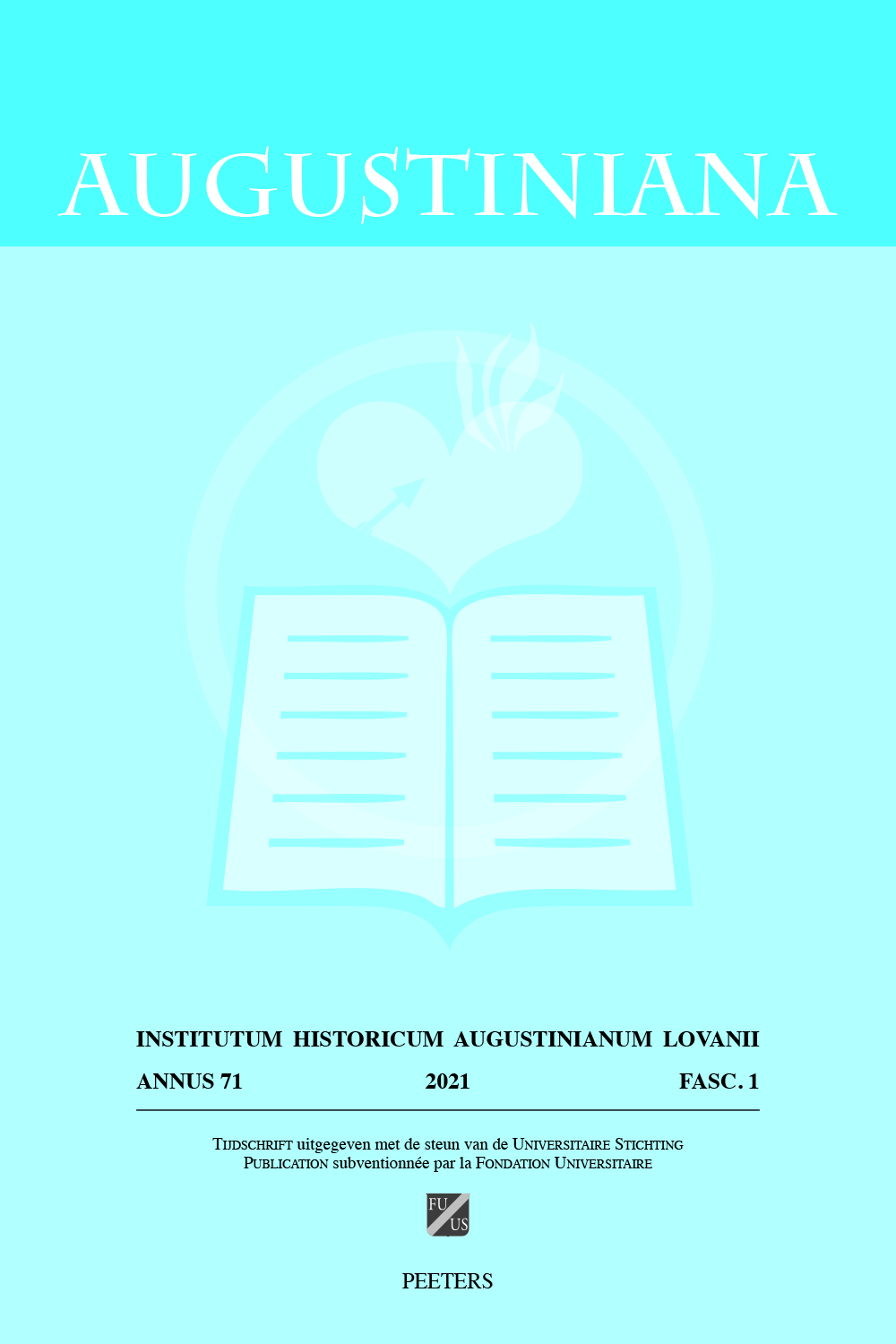 previous article in this issue previous article in this issue | next article in this issue  |

Preview first page |
Document Details : Title: Expressing the Inexpressibility of God Subtitle: A Trinitarian-Ecclesiological Reading of Augustine's De catechizandis rudibus Author(s): FINN, Douglas Journal: Augustiniana Volume: 66 Issue: 1-4 Date: 2016 Pages: 85-134 DOI: 10.2143/AUG.66.1.3197395 Abstract : In this study of Augustine’s De catechizandis rudibus, an important early Christian catechetical text, I seek to highlight the role Augustine assigns to the Holy Spirit in granting Christians the ability to speak about the inexpressible mystery of the Trinity. Recent scholarship has emphasized the role that Augustine argues the incarnate Christ plays in making visible and expressible the essentially inexpressible Trinity. Yet it is worthwhile exploring the work of the Holy Spirit in Augustine’s theology of the incarnation and the church, Christ’s ecclesial body. Augustine shows how the Holy Spirit inspires in Christian believers modes of language appropriate to the Trinitarian mystery of love that always overflows the bounds of human expectation and conceptual capacity, paradigmatically in the free and surprising grace of the incarnation. For Augustine, the love granted to believers by the Holy Spirit propels them to exceed their own bounds, to imitate the inexpressible love of Christ and delve ever deeper into the body – into the mundane realm of human language and the church community. In the language and social bonds animated and secured by self-transcending love, Christians are able to glimpse in some small measure the ineffable Trinity. Augustine’s theology of the Holy Spirit, in its incarnational and ecclesiological dimensions, thus defies a strict distinction between the kataphatic and the apophatic. Through the gift of the Holy Spirit, God gives believers the words, the proleptic means of glimpsing and describing what they will only contemplate eschatologically: who God is as Trinity, that is, as inexhaustible, indescribable self-giving love. |
 |


